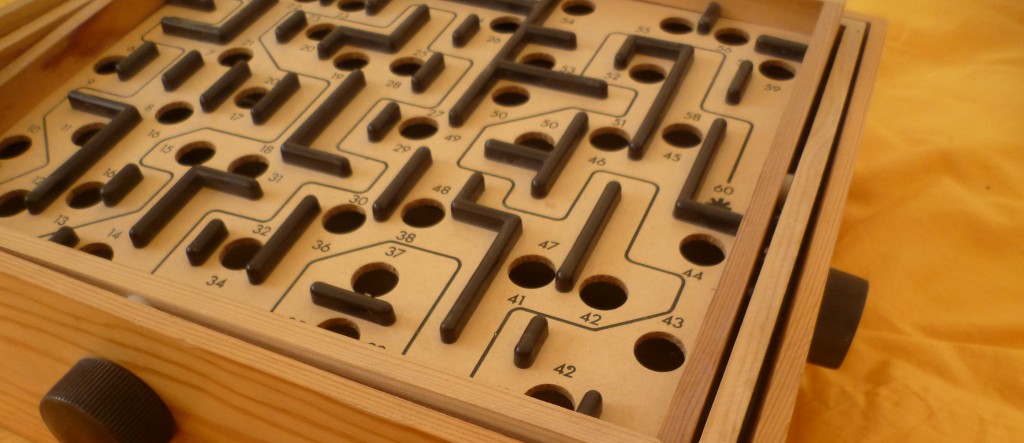Brain training computer games are very popular, and research points to potential benefits of cognitive training on brain plasticity. Lumosity, a leader in the market, currently has 70 million users worldwide, and claims in its marketing that it was developed by neuroscientists. But, a growing number of experts are questioning whether science supports the companies’ claims.
In January, the Federal Trade Commission fined Lumosity’s creator Lumos Labs $2 million for deceptively advertising that its games were scientifically proven to improve cognitive function and reduce the risk of dementia. Lumos was banned by court order from making further such claims until they could produce competent and reliable scientific evidence.
The purpose of brain training games is to promote the transfer of positive effects to real world tasks. This could work in theory, says Dr. Joe DeGutis, co-founder of the Boston Attention and Learning Laboratory, who uses cognitive training to rehabilitate attention deficits in stroke patients. But scientists don’t have enough evidence to show that it works all the time.
If you log into Lumosity, you will see a weekly training calendar, with a set of games selected for your daily training workout. You get three free games; you have to buy premium access to play more. Activities usually involve tasks that target various brain functions, such as attention, memory, and problem solving. Games can involve directing trains along a path to a station, solving math problems falling to the ground inside raindrops, or replicating patterns of tiles that flash briefly in view.
Because most research fails to determine how benefits from these games can translate to real life, it’s unclear whether they improve your brain function or just make you better at playing the game. “It’s pretty clear that if you train someone on a specific task, they tend to do better at that task,” says Dr. Michael Greicius, an associate professor of neurology at Stanford University who specializes in cognitive decline in the elderly. “The problem is the degree to which that training generalizes to a task the subject wasn’t trained on.”
In October 2014, a consensus statement released by the Stanford University Center on Longevity and the Berlin Max Planck Institute for Human Development, signed by 70 of the world’s leading neuroscientists and psychologists, strongly refuted claims supporting brain training games. The scientists argued that there is no compelling scientific evidence that such brain training reduces or reverses cognitive decline, and that claims supporting these games are often exaggerated.
It’s difficult to clinically test a cause-and-effect relationship between cognitive training and brain plasticity, explains Greicius, a signatory. Many small-scale studies remain inconclusive. Many games only address a single task, which may only engage the brain in learning that particular skill. And many studies don’t address whether effects endure beyond the game. Even though companies pitch games as something that can stave off cognitive decline he says, “there is absolutely no evidence that that’s the case.”
Some critics worry that the industry funds the research that supports their own commercial interests. Lumosity’s Human Cognition Project, an online platform that “facilitates the research of independent scientists” in over 40 institutions, provides researchers with free access to their games. Lumosity does not cite any research on their website that is outside of their team of collaborators. Perhaps in response to some of the criticism the company now posts a disclaimer on its website that states their training is not intended to cure or prevent disease.
Not all scientists dismiss the company’s claims. In December 2014, 127 scientists of varying backgrounds, several of who had ties to the industry, signed a rebuttal statement, published online, in response to the Stanford consensus. They cited dozens of randomized, controlled trials published in peer-reviewed journals as evidence that brain training can improve cognitive function.
When I contacted one of the signatories of the rebuttal statement, Dr. William Milberg, a professor of psychology at Harvard Medical School, he referred me to his associate, DeGutis, who was not a signatory. DeGutis says he agrees with the sentiment of the rebuttal, but adds, “We don’t know how [cognitive training games] work. We are still trying to figure out the mechanism of effect.”
In the midst of this debate, some scientists are trying to resolve the uncertainty. Dr. Adam Gazzaley, a Professor of Neurology at the University of California, San Francisco, and his team, developed a three-dimensional video game to test the effect of a clinical training game on multi-tasking performance in older adults. In the game, called NeuroRacer, players drive along a computer-simulated road while responding to different road signs that flash across the screen. Electrodes attached to participants’ heads during play measure changes in brain activity.
As they played, older adults who trained on the NeuroRacer program regularly got better at multitasking within the game over time. In 2013, Gazzaley’s colleagues published a study in Nature showing that a majority of the 46 participants reported noticeable improvements to short-term memory and sustained attention, skills that normally decline with age. And, the brain scans during play indicated that the game activated the pre-frontal cortex, the region of the brain involved in making executive-level decisions.
This brain activity suggests that training could affect brain plasticity, says the lead author, Dr. Joaquin Anguera, a neuroscientist at the University of California, San Francisco. But, translating these performance benefits to real world skills is still “a very difficult task to pull off,” he says.
Cognitive scientists are still trying to figure out the mechanism for how training games affect the brain. Most commercial products take a shotgun approach, using games that focus on many tasks at once. But, the best route may be to focus on a specific function like attention, DeGutis explains, because it’s malleable and easy to train. Memory, on the other hand, is difficult to rehabilitate. “Memory is really dependent on the medial temporal lobe [of the brain], and if that’s damaged, you’re screwed,” he says.
The majority of scientists agree that if cognitive training works, it would most likely benefit those who have the most to gain, such as older aging adults. And, everyone agrees that more research is needed to determine how cognitive training games function in the brain.
Unfortunately, in taking advantage of the existing research to market a product they can sell, the commercial brain training industry has somewhat delegitimized the science. But, it is also drawing attention to a field of study that hasn’t been taken seriously before. DeGutis says, “the skepticism is going to make this field way better, and hopefully it will get rid of some of the clowns that are trying to make money off of this stuff.”










